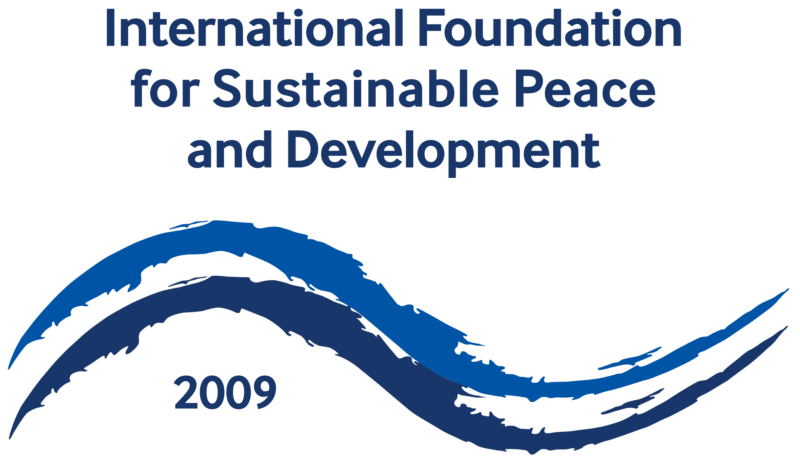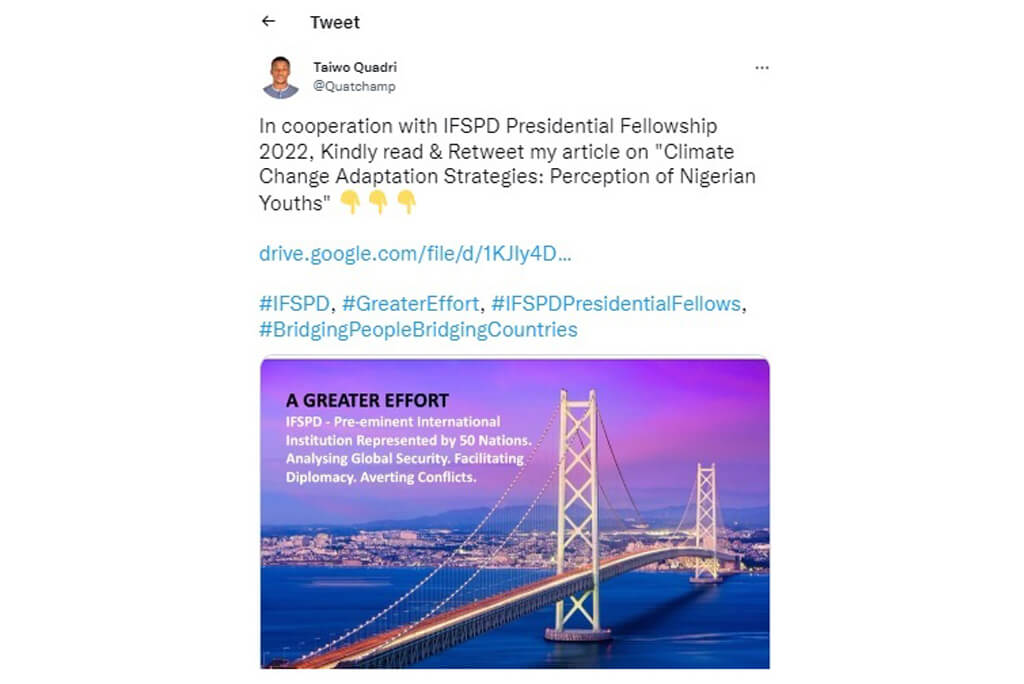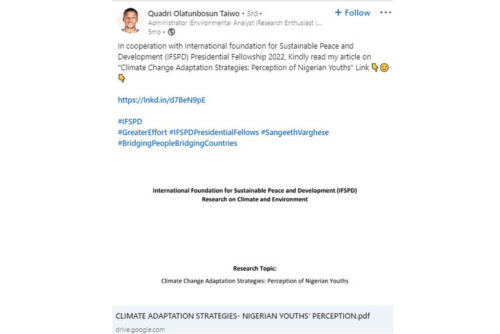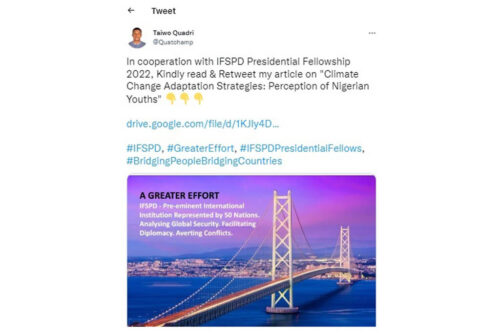Taiwo Quadri has 3 years of experience and currently works as a Spatial Planner at an Urban Planning/Environmental solution firm in Lagos, Nigeria. He worked on the project "Climate Change Adaptation Strategies:
Perception of Nigerian Youths".
Start Date: 27/07/2022
End Date: 25/08/2022
Background:
Nigeria is currently facing adversities of climate change; excessive heat, coastal erosion, and severe flooding are ravaging its cities with little or no adaptive measures. Youth are seen as one of the best and most promising resources any nation can have (National Youth Policy report 2019). Their numerical strength serves as a major yardstick to determine a country's prospects for sustainable development, i.e.
without them, tomorrow is not assured. This research work investigates the perception of Nigerian youth on climate change adaptation strategies.
Methodology:
Using the convenience sampling technique, an online survey was conducted among Nigerian Youth distributed in six (6) geopolitical zones. A pre-designed Google form containing specific questions concerning the discourse was used to register the responses of 253 respondents.
Results and Conclusion:
The research findings revealed that the vast majority of the respondents were learned young men and women participants that are between the ages of 15 and 35 years. Furthermore, 88.9% of the respondents showed a great understanding of climate science while most of the respondents strongly believed that climate-related hazards are due to harmful anthropogenic activities. As equally perceived by the respondents, climate change needs to be addressed with a framework of sustainable development.
Recommendations:
The study therefore strongly recommends that young people should embrace solid involvement in sustainable efforts/initiatives required for climate adaptation. Private sectors, NGOs, and government at all levels should cooperate with the youths by providing enabling environments necessary for teaching, innovative research, and development. More so, international communities and donors should equally assist third-world countries as in the case of Nigeria, with adequate funding to build adaptive capacities for climate change.




